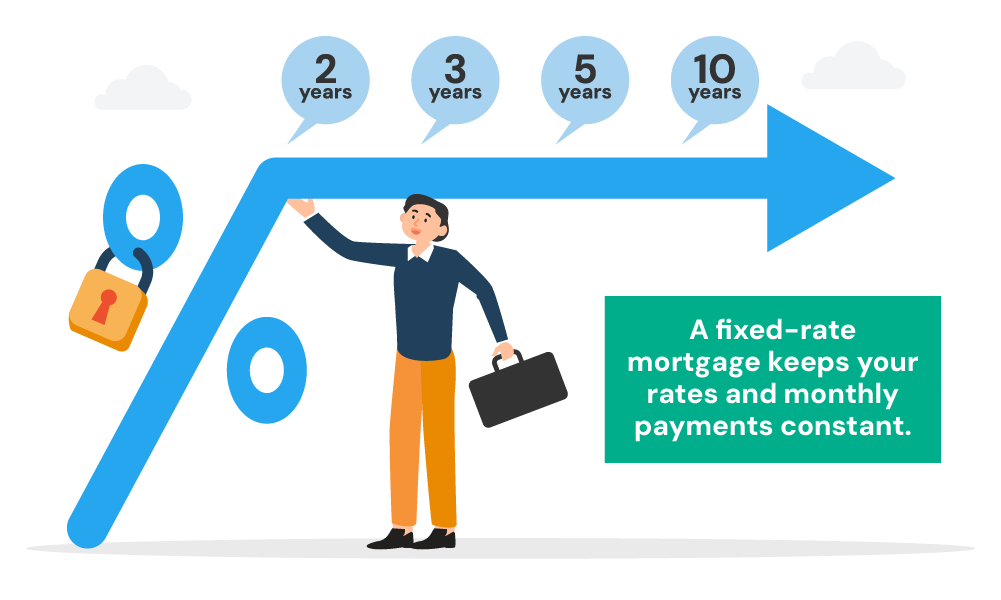Equity Release Calculator – No Personal Details Required

Lifetime Mortgages are rapidly gaining traction across the UK, becoming a popular option for homeowners in their retirement years.
If you’re curious about unlocking the equity in your home, you’ve come to the right place.
How Much Equity Can You Release?
Our equity release calculator will provide you with an immediate understanding of the equity you could release, considering various factors such as property value and age.
We’ll offer an estimate based on the same criteria that lenders use, reflecting your personal financial situation.
This should take less than 30 seconds to complete.
Understanding Your Equity Release Calculator Results
Using our equity release calculator, you’ll see options tailored to your situation. Here’s what the numbers mean:
- The maximum release plan shows the highest amount you can borrow against your property’s value.
- Calculations consider factors like your age, property value, and desired loan amount to determine your potential borrowing.
These insights help you understand equity release rates and the available choices. Our calculator is designed to guide you through these important financial decisions.
How to Use Our Equity Release Calculator Effectively?
Equity release calculators are vital tools for understanding how much equity you may be able to access from your property. But, it’s essential to keep the following points in mind:
- Accuracy of Information. The figures provided by the calculator are estimates. They are based on the data you enter, so it’s crucial to provide accurate and up-to-date information. Any inconsistencies can lead to incorrect calculations.
- Subject to Lender’s Criteria. The calculator’s results align with general lender criteria, but individual lenders may have specific terms. Consult with an advisor or lender for a precise offer.
- Inclusion of Various Factors. Equity release calculations consider factors such as property value, age, location, and more. Understanding these can help you use the calculator more effectively.
- This is Not a Formal Offer. The results from the calculator are for informational purposes only and should not be considered a formal financial offer or advice. It’s advisable to speak with an equity release specialist or financial adviser to explore your options in detail.
- Understanding the Implication. Equity release is a big financial decision with long-term implications. Before proceeding, consider seeking professional advice to ensure that it fits your financial goals and needs.
- Consider Different Scenarios. Feel free to use the calculator multiple times, altering variables to explore different scenarios. This can give you a broader perspective on your potential equity release options.
- Privacy and Security. Rest assured that the information you enter is used solely for calculation purposes. This is not stored or shared without your consent.
Our equity release calculator can give you a general idea of what you could borrow against your property. But, it’s important to get professional advice from an equity release specialist to make sure you get the right solution for your individual needs.
A specialist will be able to take into account your financial situation, your goals, and your unique circumstances to recommend the best type of equity release for you.
They can also help you understand the risks and benefits of equity release and make sure you’re making the right decision for your future.
To get a starting point, feel free to try the calculator or reach out to get linked with an equity release specialist for personalised support.
Digging Deeper: More on Equity Release
What is Equity Release?
Equity release is a way for homeowners aged 55 or over in the UK to get money from the value of their property.
There are two common types: Lifetime Mortgages and Home Reversion Plans.
With Lifetime Mortgages, you take out a loan against your home but keep ownership. The interest is usually rolled up, meaning it accumulates and is repaid along with the loan when you die or move into care.
With Home Reversion Plans, you sell part or all of your property to a provider for money or regular payments.
In both cases, you can still live in your home, and the loan or sale is settled when you die or move into long-term care.

>> More about Equity Release
What are the Current Interest Rates for Equity Release?
Equity release interest rates in the UK typically range between 6.5% and 9.2% APR, as of December 2024.
These rates can vary significantly depending on several factors, so it’s essential to understand what influences them.
Here are some key factors that impact equity release interest rates:
- Loan-to-Value Ratio (LTV): Borrowing a higher percentage of your property’s value usually results in a higher interest rate.
- Property Value: Homes with higher valuations tend to attract lower interest rates.
- Health and Lifestyle: Certain health conditions or lifestyle factors may make you eligible for lower rates.
- Age and Marital Status: Older borrowers or couples may face higher rates based on life expectancy calculations.
- Lender Policies: Interest rates differ between lenders, depending on their terms and product offerings.
- Economic Conditions: Market factors like inflation and the Bank of England base rate can influence equity release rates.
- Product Features: Additional benefits like inheritance protection or drawdown flexibility can affect the rate you’re offered.
- Future Property Value Projections: Lenders may consider your property’s potential future value.
- Credit History: While less significant than with traditional loans, a poor credit history could still affect your equity release rate.
- Additional Costs: Other costs, such as application fees and early repayment charges, might apply depending on the product.
Equity release interest rates are usually fixed, which means they won’t change over time. But it’s always good to talk to an expert to find the best deal and get all the details before deciding.

>> More about Equity Release Rates
How to Repay an Equity Release?
There are two common ways to repay an equity release namely – Roll-up interest and Interest Only.
Roll-up Interest
With this option, the interest is added to the total loan amount and compounded over time. You don’t make any monthly payments, but the amount you owe grows, increasing the final amount payable.
Here’s how it works: Compound Interest Illustration
Let’s say you secured a £100,000 lifetime mortgage with a fixed annual interest rate of 5%. Here’s how the interest would accumulate over 20 years:
| Year | Initial Balance (£) | Interest for the Year (£) | Total Balance (£) |
|---|---|---|---|
| 1 | 100,000 | 5,000 | 105,000 |
| 2 | 105,000 | 5,250 | 110,250 |
| 3 | 110,250 | 5,513 | 115,763 |
| 4 | 115,763 | 5,788 | 121,551 |
| 5 | 121,551 | 6,078 | 127,629 |
| 10 | 155,133 | 7,757 | 162,890 |
| 16 | 207,894 | 10,395 | 218,289 |
| 17 | 218,289 | 10,914 | 229,203 |
| 20 | 252,696 | 12,635 | 265,331 |
In this example, the total balance after 20 years would be £265,331, more than double the original amount borrowed. This amount will be paid when you die or move into long-term care.
Interest-Only Equity Release
With an interest-only lifetime mortgage, you only pay the interest on the loan each month. This means that the loan amount doesn’t grow, so you can keep the final amount under control.
If you pay the full interest each month, your total loan balance after the term will be for the loan amount plus any redemption fees or setup costs.
>> More about Interest Only Equity Release
How Much Does Equity Release Cost?
Interest rates for lifetime mortgages start at around 5% and can go up to 8.5% MER. This is much higher than the interest rates on standard residential mortgages.
It’s important to compare interest rates and fees from different providers to get the best deal.
In addition to the interest, there are also fees associated with equity releases, such as arrangement fees, property valuation fees, and legal and surveyor charges. These fees typically range from £1,500 to £3,000.
It’s important to consider all of the costs involved in equity release before you make a decision. The actual costs will depend on your circumstances and the provider you choose.
Should You Pay Off Your Equity Release Early?
There are a few things to consider when deciding whether or not to pay off your equity release early.
- Interest Rates and Loan Amount – Paying early might save on interest.
- Penalties and Charges – Check for any early repayment fees.
- Future Financial Goals – Consider your long-term liquidity requirements.
What are Early Repayment Charges (ERCs)?
ERCs are fees you might incur if you decide to pay off your equity release early. There are mainly two types:
- Fixed Term ERC – These charges are fixed for a specific period, say five years, and typically decrease over time.
- Gilt-based ERC – These are linked to government bonds, and their value can change.
Special Circumstances Where ERCs Are Not Applied
You might be concerned about early repayment charges (ERCs) on your equity release plan. But, there are times when you don’t need to worry about these charges:
- If the Last Person on the Mortgage Dies
- If the Last Borrower Moves into Long-Term Care
- If there are specific exemptions in your plan – Some equity release plans have special rules where ERCs don’t apply. These will be different for each plan.
>> More about Paying Off Equity Release Early
These unique features can impact your decision when you calculate equity loan options. Try our equity release calculator to have further guidance about your choices and view what’s available.
Whether you’re new or looking to understand the finer details like interest rates and equity release, the right tools and information are here at your disposal.
The Bottom Line: Is Equity Release Expensive?
It’s a question many homeowners find themselves asking. Yes, it can be. But with careful planning and understanding, it doesn’t have to break the bank.
Equity release can indeed seem costly, with higher interest rates and various fees like valuation and application charges. Compound interest can make the amount grow more than you’d expect, and if you wish to pay off early, there might be penalties.
But don’t let that scare you away. Some plans don’t require monthly repayments, and there are options to cap interest rates or even make interest payments.
With the right guidance from an experienced mortgage advisor who knows equity release inside and out, you can find a plan that fits your budget.
Get Matched With Your Dream Mortgage Advisor...

Frequently asked questions
Can You Get Equity Release on Jointly Owned Property?
Yes, you can get equity release on a jointly owned property. Both owners must agree to the terms and meet the eligibility criteria.
Can You Get an Equity Release if You Have a Mortgage?
Yes, you can get equity release if you have a mortgage. Typically, the equity release must first be used to pay off the existing mortgage, and any remaining funds can be used as you wish.
Can You Get an Equity Release with Bad Credit?
Yes, you can get equity release with bad credit. While credit history may be considered, the main factors are usually the property’s value and the applicant’s age.
Is There an Age Limit for Equity Release?
Yes, there is an age limit for equity release. Most providers require you to be at least 55 years old, although this can vary. It’s best to check the specific criteria with individual equity release providers.




